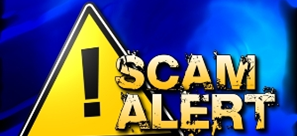SERVING
Those That
SERVED
Scams
VCP Under Attack by Scammers
August 14, 2017
Attention Veterans! The Federal Trade Commission (FTC) has issued a warning about a newly established fraud scheme that targets all veterans who utilize the Veteran’s Choice Program (VCP). Scammers have set up a several fake telephone numbers that are almost identical to the real VCP number used by the Department of Veterans Affairs (VA). According to the VA, the scammers are using the following fraudulent telephone lines: 800-606-8197, 800-606-8198 and 800-606-8199.
The bogus telephone lines have messages that will indicate that you are entitled to a $100, $200 or $300 rebate if you provide your credit card number or debit card number to which the rebate can be sent. Also, the message states that the automated system is designed to process your rebate in the fastest time possible if you simply follow the prompts.
Per the VA, there is no rebate involved with the VCP and if you give your credit card or debit card information to the scammers, your account will be debited for hundreds or thousands of dollars.
The correct VCP telephone number is: 866-606-8198.
Veterans will know they are connected to any one of the fraudulent telephone lines if any of the following occur:
The message offers veterans a $100 rebate if they provide a credit card or debit card number.
The message does not state the veteran has reached U.S. Department of Veterans Affairs (VA) or VCP.
Veterans should note that operators on these scam telephone lines might incorrectly state that veterans have reached the VA or VCP if asked.
FYI: The VA, nor any other government agency will never ask for your financial account information over the telephone or by using an automated telephone system.
Hurricane Harvey Scam
September 1, 2017
The newest “hot scam” currently active preys on the benevolent nature of veterans and military families by asking them to donate money to the victims of Hurricane Harvey. The phony charities designed to take your money are highly sophisticated and the scammers are highly trained to scam you and others out of millions of dollars. Their use of technology is cutting edge. For instance, the scammers are using telephonic screen technology to make it look as if they are actually calling from the phony organization they set up as viewed on the receivers caller ID. The scammers are also using similar names of legitimate organizations as to confuse the veteran they are calling. Scammers state they are from “UFO” for example, confusing a veteran into thinking he/she may have heard USO, which most veterans are family with. Or, as reported by thousands of veterans, the scammers may use “Red Kross,” tricking veterans into believing they are working with the more familiar Red Cross organization.
Furthermore, some of the scammers are using “ghost websites” that look and operate like legitimate websites of familiar organizations. The bogus websites mimic the characteristics of legitimate organizations, however, one main element that may suggest the site is bogus is the URL ending. Even if the name is familiar (i.e., Veterans of Foreign Wars) check the URL destination where the funds are to be sent. The name may be misappropriated. If the designated name ends in “.com, .net, .ws, .biz” rather than “.org,” you may not want to send funds to the organization. Always check with your local office to verify organization before sending funds.
A veteran should investigate the organization asking for money before donating any cash. To avoid such scams never donate by e-mail, send cash electronically or send funds to an organization name with which you are not familiar.
AARP has set up a hotline to help veterans with these scam artists. Any veteran involved in any kind of suspected scam is invited to report it at 877-908-3360. Also, before sending funds check with Charity Watch or Charity Navigator to verify legitimacy of organization.
